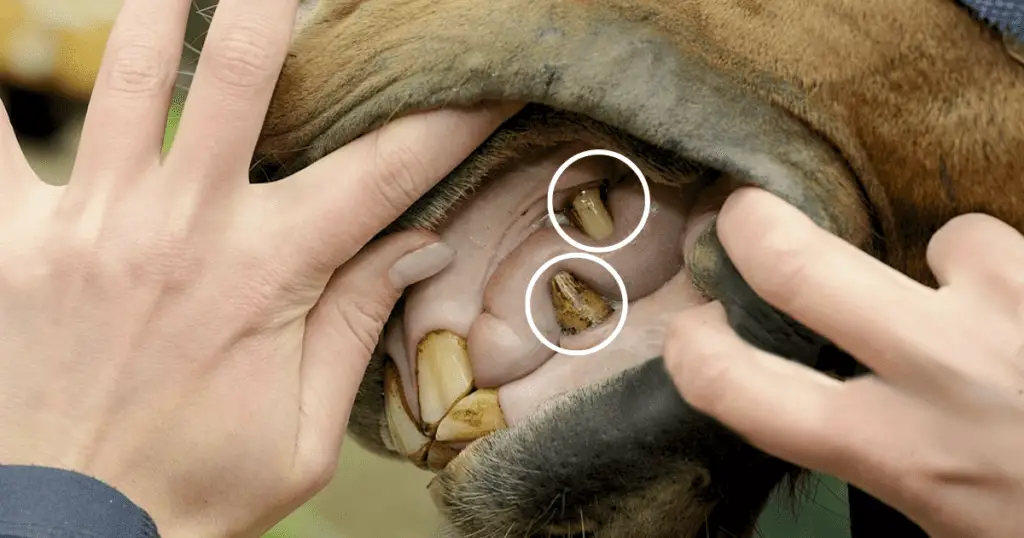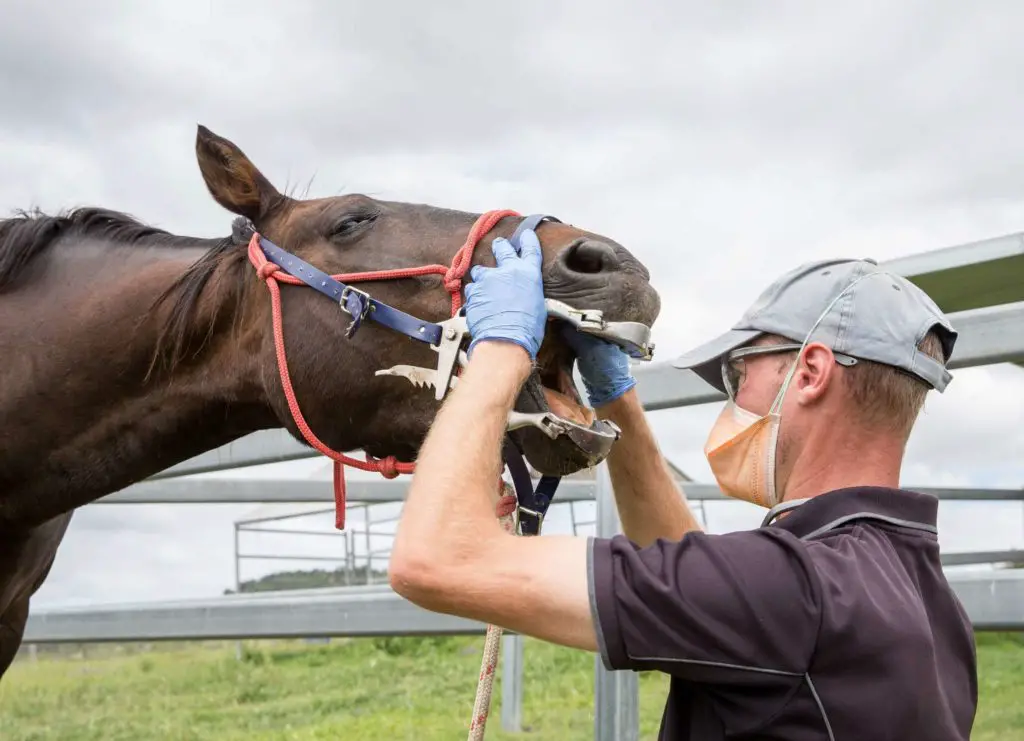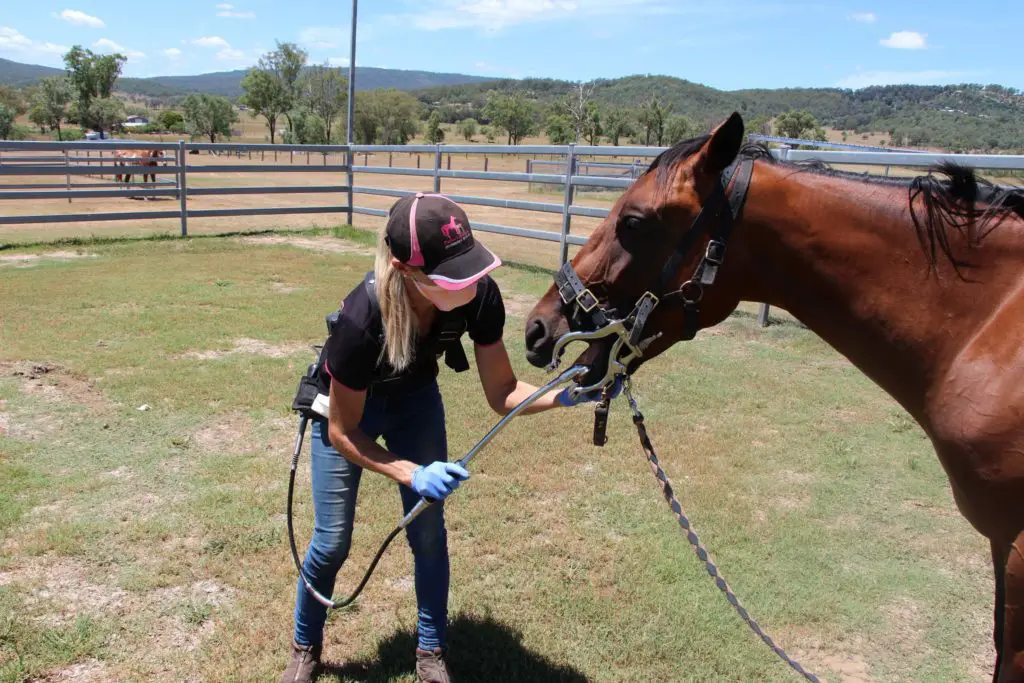Wolf teeth are found in 70% of horses, including fillies and colts. Most often, wolf teeth can remain inside your horse’s mouth without causing any issues.
However, they do contain nerves and will cause pain if they come into contact with the bit.

Wolf teeth usually erupt between five and 12 months of age, but don’t continue to erupt during your horse’s lifetime like other cheek teeth. As the horse has evolved into the domestic animals we know today, their teeth have grown in size, making the smaller wolf tooth redundant when chewing.
In some instances, wolf teeth don’t emerge through the gums. These are called blind or unerupted wolf teeth. If a wolf tooth remains clear of the bit during riding or driving, your horse won’t experience any discomfort, regardless of whether it has erupted or not.
However, if a wolf tooth comes into contact with the bit, for example, if you change bits, then pain avoidance behaviors can occur. These include:
- Head tossing
- Head tilting
- Rearing
- Pulling hard
- Tongue over the bit
- Reluctance to take a lead
Many equine dental veterinarians recommend the removal of cheek teeth to avoid these bit issues while creating more space in the horse’s mouth to easily examine, clean, and contour the upper and lower cheek teeth.
Like any other dental procedure, wolf teeth should only be removed by a qualified equine dental veterinarian, using sedation and local anesthetic (See Images of Procedure). As wolf teeth come in many shapes and sizes, the procedure may take only a few minutes or up to 20 minutes.
Ensure your horse is protected against tetanus prior to any tooth extraction. Small puncture wounds, like tooth removal, are the ideal environment for the tetanus bacteria, clostridium tetani, to thrive. Mares and geldings should both be protected against this deadly disease.



